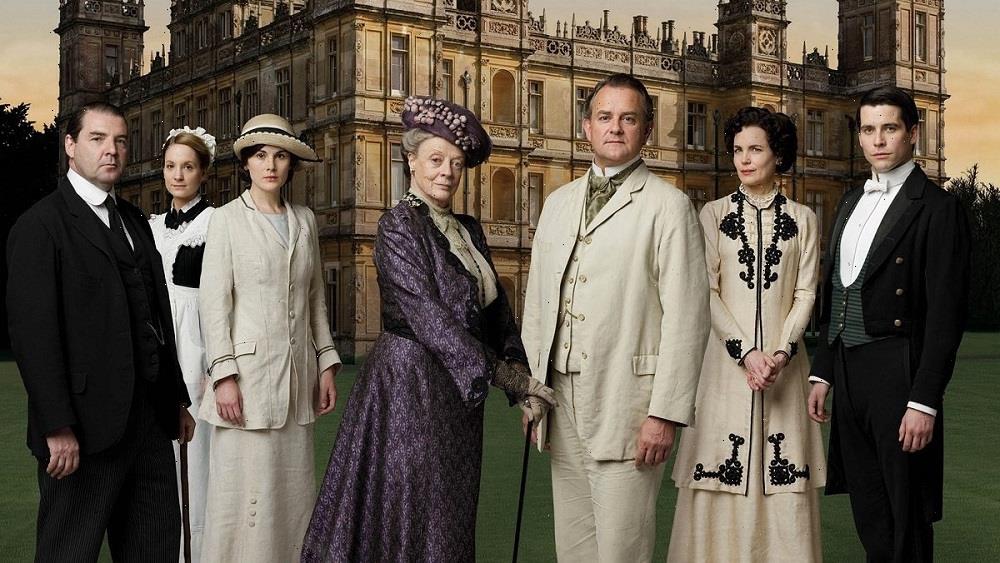
UK Government Lining Up Requirement For Public Service Broadcasters To Produce “Distinctively British” Content — RTS Convention
09/15/2021With the news today that Oliver Dowden has been replaced as UK Culture Secretary by Nadine Dorries, a version of the RTS speech published early this morning was in fact delivered by John Whittingdale, Minister Of State For Media And Data.
In addition to laying out the government’s desire to privatize Channel 4, Whittingdale told the RTS audience that the government will look to introduce requirements for public service broadcasters (PSBs) to produce “distinctively British” content and for all platforms to prominently carry PSB content.
Whittingdale, a strong supporter of Brexit and Channel 4 privatization, noted that shows such as Dr Who, Downton Abbey, Great British Bake Off, Top Gear, The Bodyguard and Planet Earth have been huge international hits but also “reflect Britain and British values”.
Whittingdale announced plans to expand the types of programs the nation’s PSBs are required to produce and air to include what he called “distinctively British” content.
Watch on Deadline
He said the move will ensure the UK continues to be a creative powerhouse for high-quality TV shows in the face of growing competition from U.S. streamers.
The Media Minister also announced new plans to legislate to ensure PSB content is always carried and discoverable to UK audiences on connected devices and major online platforms – including smart TVs, set-top boxes and streaming sticks – as more and more viewers turn to them over traditional TV.
Proposals for these measures will be included in a Broadcasting White Paper to be published this autumn.
New ‘Britishness’ requirements
UK PSBs currently have requirements in their remits to broadcast ‘original’ content. This was previously considered sufficient to ensure their programming had a characteristically British dimension.
However, the government believes that the globalisation of broadcasting means that more of the content we watch is set in non-specific locations or outside the UK, with an international cast, “communicating in U.S. English”.
“This risks TV made in the UK becoming indistinguishable from that produced elsewhere and less relevant for UK audiences, as well as minimising its proven soft power abroad,” a press release from the DCMS stated.
Ministers are therefore considering “adding to the definition of ‘original productions’ and making the focus of the PSB system more explicit on content that contributes to British culture and allows UK audiences to see their own way of life and representations of themselves reflected on TV.”
In his speech, Whittingdale said: “Global investment is extremely welcome – but I want to make sure it doesn’t water down British creativity or the British brand.
“Public service broadcasters have a unique role and I want them to continue producing shows that allow people in every corner of the UK to see their lives reflected on screen, and that showcase the things we are most proud of to the rest of the world. To make programmes that are iconic, not generic.
“So in our upcoming White Paper, I intend to include proposals that will expand the remit of public service broadcasters, so that it includes a requirement for them to produce ‘distinctively British’ content.
“If it’s set in Britain and made in Britain by our public service broadcasters, then it should be distinctively British.”
Details will be set out in the White Paper, but it could mean Ofcom issuing genre-specific guidance for PSBs against which to measure their programmes, requirements to use predominantly British talent or greater priority being given to national sporting and cultural ‘moments’ that bring people together, such as Emma Raducanu’s US Open victory last weekend.
PSB prominence on digital platforms
Current ‘prominence’ rules state that the PSBs must be listed in the first five slots in electronic programme guides on TV sets. However these rules do not extend to TV guides and other user interfaces within online TV platforms.
The government today announced that Ministers will update the rules so that PSB content is legally required to be carried across popular online TV platforms including Smart TVs, pay TV services, streaming sticks and set top boxes.
The PSB on-demand services (e.g. BBC iPlayer, ITV Hub, All 4 and My5 and regional services like S4C’s Clic and STV Player) will also need to be easily findable on platform user interfaces such as homepages.
The government believes this will be a significant boost to the future sustainability of public service broadcasting.
Whittingdale explained: “I want to ensure British broadcasters get the exposure they deserve – no matter how their content is consumed. Public service broadcasters have been part of our national life for almost a century, and are uniquely placed to reflect our values. It’s incredibly important that they keep their place at the heart of television.
“That’s why we plan to legislate as soon as possible, and make it a legal requirement that major online platforms must carry PSB content, and that they must ensure it’s easy to find.”
More detail will be set out in the White Paper – building on recommendations from Ofcom – “for a principles-based approach to prominence which is proportionate and adaptable for the future”. This will likely mean a role for Ofcom to develop guidance and have the necessary enforcement powers.
Today marked the end of Oliver Dowden’s stint as Culture Secretary. He becomes Minister without Portfolio at the Cabinet Office and Co-Chairman of the Conservative Party.
Nadine Dorries has served as UK health minister since 2019, and has served as MP for Mid Bedfordshire since 2005. She also appeared on I’m A Celebrity in 2012, but was suspended from the Conservative party after entering the reality show without permission.
Read More About:
Source: Read Full Article

